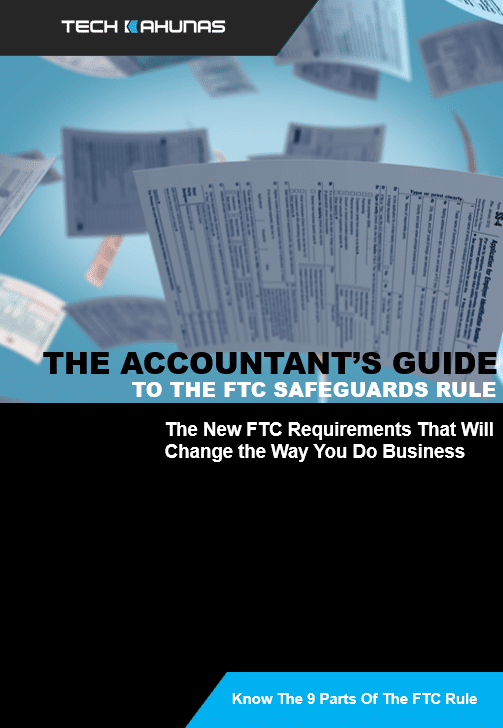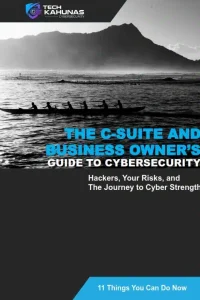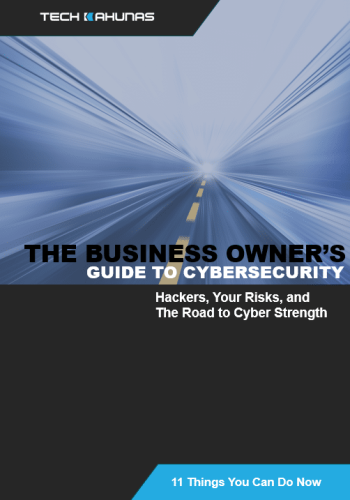Choosing the best managed IT service provider nearby involves a few key steps. First, assess your current IT infrastructure and needs. Identify gaps your team can't fill, especially in cybersecurity and software management. Look for providers with verified technical certifications like CompTIA A+ or CISSP, guaranteeing they're equipped to handle your industry-specific challenges. Evaluate their customer support options, including response times and availability, as well as their pricing models to fit your budget. Request references or testimonials to gauge their reliability. As you explore further, you'll uncover how to confirm your selected provider aligns perfectly with your business goals.
Key Takeaways
- Assess your business's current IT infrastructure and identify gaps needing external support.
- Verify provider expertise through certifications and industry experience relevant to your sector.
- Evaluate the provider's security measures, including encryption and threat detection capabilities.
- Ensure the provider offers 24/7 technical support with quick response times and multiple support channels.
- Compare pricing models for predictability and scalability aligned with your business needs.
Understanding Managed IT Services
Managed IT services are a vital component for businesses looking to streamline their operations and enhance their technological capabilities. When you decide to use these services, you're fundamentally outsourcing your IT needs to a third-party provider. This can include everything from network management and cybersecurity to data storage and software updates. By doing so, you're relieving your internal team of the burdensome task of managing complex IT systems, allowing them to focus on core business functions.
You'll find that managed IT services offer a proactive approach to technology management. Instead of waiting for something to break, your service provider monitors your systems continuously to prevent issues before they occur. This means less downtime and more productivity for your business.
Plus, you won't have to worry about keeping up with the latest tech trends or security protocols—your provider does that for you.
Another advantage is cost predictability. With managed IT services, you're usually on a fixed monthly fee, making budgeting easier. Additionally, you gain access to a team of experts without the expense of maintaining a full-time IT staff.
Understanding these benefits is vital in making informed decisions when choosing a provider.
Assessing Your Business Needs
To choose the right managed IT service provider, start by analyzing your current IT infrastructure.
Determine where you stand now and what improvements are needed to support your operations.
Next, identify your growth objectives to guarantee the provider can scale with your business needs.
Analyze Current IT Infrastructure
Evaluating your current IT infrastructure is a crucial step towards selecting the right managed IT service provider. First, take a detailed inventory of your hardware, software, and network components. Identify what's working well and what's causing frequent issues. Are your systems outdated, or do you struggle with compatibility problems? Knowing these details will help you communicate your needs clearly to potential providers.
Next, assess your current IT team's capabilities. Do they have the skills to handle all aspects of your IT operations, or are there gaps? Understanding this will assist you in deciding which services you need from an external provider.
Additionally, review your current security measures. Are your data protection protocols robust enough to fend off cyber threats? If not, this becomes a key area to address.
Don't forget to evaluate your current IT costs. Calculate what you're spending on maintenance, upgrades, and unforeseen repairs. This will give you a baseline to compare with potential service provider quotes.
Identify Growth Objectives
Understanding your business growth objectives is essential when selecting a managed IT service provider that aligns with your future plans. You need a provider who understands where you're headed, whether it's expanding to new markets, launching new products, or scaling operations.
Start by clearly defining what growth means for your business. Is it increasing revenue, expanding your team, or improving operational efficiency? Knowing your goals will help you find a provider that can offer tailored solutions to support your journey.
Next, assess how technology can facilitate your growth. Consider what IT infrastructure you'll need to support larger operations or more complex services. Will you require more robust cybersecurity measures, scalable cloud solutions, or enhanced data management capabilities?
Identify these needs early so you can communicate them to potential providers.
In addition, look for a provider with a track record of supporting businesses with similar growth trajectories. They should offer flexible solutions that can evolve with your changing needs. Check their past client success stories or case studies.
Evaluating Provider Expertise
When choosing a managed IT service provider, start by evaluating their technical certifications to guarantee they meet industry standards.
Next, examine their industry experience to see if they've worked with businesses similar to yours.
Assess Technical Certifications
How can you be certain an IT service provider is truly qualified? One effective way is by evaluating their technical certifications. Certifications demonstrate that a provider has the necessary skills and knowledge to handle your IT needs.
When you're reviewing potential providers, check for these important certifications to verify they meet industry standards.
- CompTIA A+: This certification verifies the provider has a foundational understanding of computer hardware and software, essential for troubleshooting.
- Microsoft Certified Solutions Expert (MCSE): This certifies expertise in Microsoft technologies, which is significant if your business relies on Microsoft products.
- Cisco Certified Network Associate (CCNA): If your business requires robust network management, look for this certification to confirm the provider can manage and troubleshoot your network.
- Certified Information Systems Security Professional (CISSP): Cybersecurity is critical, and this certification indicates that the provider can protect your data and systems.
- ITIL Foundation: This certification shows the provider understands IT service management best practices, guaranteeing efficient and effective IT service delivery.
Checking these certifications helps you gauge whether the provider can deliver the technical expertise your business needs.
Don't hesitate to ask for proof of these certifications to validate their authenticity.
Examine Industry Experience
Frequently, industry experience can be a crucial factor in determining an IT service provider's competence. When you're evaluating potential providers, consider how long they've been in business and what industries they've served.
Experience often translates to a deeper understanding of your specific needs and challenges, which is fundamental for effective IT support. Providers with a broad industry background are more likely to have encountered and resolved issues similar to yours, giving them a practical edge.
Look for a provider with a proven track record in your specific industry. If they've successfully managed IT for businesses like yours, that's a strong indicator they can handle your requirements too. You can ask for case studies or client references to understand how they've helped companies similar to yours.
This will give you insight into their problem-solving capabilities and adaptability.
Don't hesitate to ask pointed questions about their experience. How have they addressed industry-specific challenges? What unique solutions have they implemented?
Their answers will help you gauge their expertise and reliability. Remember, a provider with relevant industry experience is more likely to deliver tailored solutions that align with your business objectives and technological needs.
Verify Skill Specializations
To guarantee you're partnering with a competent IT service provider, it's important to verify their skill specializations. You want a provider who can address your specific needs with expertise.
Start by evaluating their technical abilities and make sure they've a proven track record in the areas essential to your business. Look for certifications that demonstrate their professionals are up-to-date with industry standards. Don't just take their word for it; ask for case studies or client testimonials that highlight their successful projects.
Here are some key areas to take into account when verifying skill specializations:
- Network Security: Make sure they can protect your data against cyber threats.
- Cloud Services: Check if they offer seamless cloud integration and management.
- Data Management: Look for expertise in data storage, backup, and recovery solutions.
- Technical Support: Confirm they provide 24/7 support to resolve issues quickly.
- Regulatory Compliance: Verify they understand compliance requirements relevant to your industry.
Checking Scalability Options
Scalability is an important factor when selecting a managed IT service provider, as it directly impacts your company's ability to grow and adapt. You need a provider that can handle increased workloads and evolving technological needs without causing disruption.
Start by evaluating whether the provider can support your current operations and has the infrastructure to scale up as your business expands. Ask about their processes for scaling services and whether they can quickly adapt to sudden changes in demand.
Inquire about their experience with businesses of your size and industry. Providers familiar with your sector are more likely to understand the unique challenges and growth patterns you face.
Verify they offer flexible plans that allow you to adjust services without incurring hefty fees. This flexibility is vital for maintaining cost efficiency as your business scales.
Additionally, evaluate their technology stack and partnerships. Providers with access to advanced tools and a wide network of partners can offer more scalable solutions.
Check if they invest in upgrading their tech and training their staff regularly. By confirming these scalability options, you verify your IT infrastructure won't be the bottleneck in your company's growth journey.
Analyzing Security Measures
A fortress of security is essential when selecting a managed IT service provider. You can't afford to overlook the importance of strong security measures.
Start by checking whether their security protocols align with your industry standards and regulations. It's important to guarantee that they've a solid strategy for safeguarding your data and systems.
Here's what you should look for:
- Data Encryption: Verify that they use advanced encryption methods to protect your sensitive data both in transit and at rest.
- Regular Security Audits: Confirm that they conduct regular security audits to identify and address vulnerabilities.
- Threat Detection and Response: Ensure they've robust systems in place for real-time threat detection and response.
- Access Control: Check that they implement strict access control measures to limit data exposure and prevent unauthorized access.
- Compliance Certifications: Look for certifications like ISO 27001 or SOC 2, which indicate adherence to high security standards.
Reviewing Customer Support
When evaluating a managed IT service provider, always consider the quality of their customer support. It's essential to guarantee you're not left stranded when issues arise. Look for providers that offer 24/7 support, so you can get help whenever you need it.
Pay attention to their response times. Quick responses can mean the difference between a minor hiccup and a major disruption.
Check if the provider offers multiple channels for support, like phone, email, and live chat. This flexibility allows you to choose the most convenient method for your needs.
Don't forget to ask about their escalation process. Knowing how quickly your issues can be resolved at higher levels can be reassuring.
Read reviews and testimonials from other customers. These can provide insights into the provider's reliability and effectiveness in resolving issues.
Also, inquire about dedicated account managers. Having a direct point of contact guarantees personalized service and a better understanding of your specific needs.
Lastly, assess their communication skills. A good support team listens carefully, explains solutions clearly, and keeps you informed throughout the resolution process.
With solid customer support, you can trust that your IT needs are in capable hands.
Comparing Pricing Models
While customer support is a key factor, the pricing model of a managed IT service provider often plays a decisive role in your selection process.
It's essential to understand how different pricing models can impact your budget and service expectations. Not all providers offer the same pricing structures, so comparing them will help you identify which aligns best with your needs.
Start by considering these common pricing models:
- Flat-rate: You pay a fixed monthly fee for a set range of services, making budgeting easier.
- Per-user: Costs vary based on the number of users, providing scalability as your team grows or shrinks.
- Per-device: Your fees depend on the number of devices managed, which could be beneficial if devices outnumber users.
- Tiered: Offers different levels of service packages, allowing you to choose the one that best fits your requirements and budget.
- Customized: Tailored pricing based on your unique needs, offering flexibility but requiring careful negotiation.
Each model comes with its own pros and cons, so weigh them against your business's specific needs and future growth plans.
Be certain you understand what's included in each plan to avoid unexpected costs. This way, you guarantee your chosen provider delivers the value you expect.
Reading Client Testimonials
Client testimonials are a powerful tool in your decision-making process when choosing a managed IT service provider. They offer firsthand accounts of other clients' experiences, giving you valuable insights into what you can expect.
As you read through these testimonials, pay close attention to recurring themes. Do clients consistently praise the provider for their responsiveness, reliability, or expertise? These patterns can indicate the provider's strengths.
Look for testimonials that address specific issues that are important to you. If you're concerned about cybersecurity, prioritize feedback that mentions the provider's effectiveness in this area. Are there any concerns about downtime or support response times? Negative testimonials can be as telling as positive ones, highlighting potential areas of concern.
Don't just skim through; analyze the details. Consider the industry of the client giving the testimonial. Are they similar to your own? This can help you determine if the provider has the relevant experience to meet your needs.
Also, check the date of the testimonials. More recent feedback will give you a clearer picture of the provider's current performance. By thoroughly evaluating client testimonials, you'll gain a better understanding of how the provider aligns with your expectations.
Making the Final Decision
After thoroughly evaluating client testimonials, you're better equipped to make the final decision on choosing the right managed IT service provider.
Now, it's essential to weigh all the evidence and guarantee the provider aligns with your business needs. To guide your choice, consider the following key factors:
- Service Level Agreement (SLA): Confirm the SLA is thorough and meets your expectations for response times and service quality.
- Scalability: The provider should be able to grow with your business, offering flexible solutions that can scale as you expand.
- Security Measures: Evaluate their security protocols to guarantee your data and systems will be protected against threats.
- Pricing Structure: Look for transparent pricing with no hidden fees, ensuring it fits within your budget constraints.
- Support Availability: Confirm that they offer round-the-clock support to handle any issues promptly, minimizing downtime.
Once you've assessed these factors, trust your instincts and the data you've gathered.
Selecting a managed IT service provider is a significant decision that impacts your business's efficiency and security.
Frequently Asked Questions
What Certifications Should a Reputable Managed IT Service Provider Possess?
You should look for providers with certifications like CompTIA A+, Microsoft Certified Partner, Cisco Certified Network Associate (CCNA), and ITIL. These credentials guarantee they're qualified and experienced, giving you confidence in their ability to manage your IT needs.
How Often Should a Business Reassess ITs IT Service Provider?
Think of reassessing your IT service provider like tending a garden. You should do it annually to guarantee everything's thriving. Technology evolves, so don't let weeds of outdated service creep into your business operations.
What Are Common Signs of Inadequate IT Support?
You'll notice slow response times, unresolved issues, and frequent outages. Communication is poor, updates are missed, and security isn't prioritized. Costs may rise unexpectedly, and you'll feel unsupported. It's time to reassess your IT support.
Can Managed IT Services Be Customized for Niche Industries?
Absolutely, managed IT services can be tailored for niche industries. Imagine a boutique law firm needing secure client data management—providers adapt solutions to fit your specific needs, ensuring compliance and efficiency without one-size-fits-all limitations.
How Do Managed IT Services Integrate With Existing In-House IT Teams?
Managed IT services work seamlessly with your in-house IT team by complementing their skills, filling gaps, and offering specialized expertise. They enhance productivity, streamline processes, and support scalability, ensuring your business runs smoothly and efficiently.
Conclusion
So, you've finally waded through the labyrinth of choosing a managed IT service provider. Congrats, you're now an expert in deciphering tech jargon and spotting the elusive "perfect fit." Remember, it's not just about finding someone who can fix your printer at 3 am. You want a partner who'll make your life easy while making your wallet weep just a little less. Trust those testimonials, pray they're genuine, and may the IT odds be ever in your favor!


 Get your CPA firm aquainted with new FTC rules.
Get your CPA firm aquainted with new FTC rules. 




